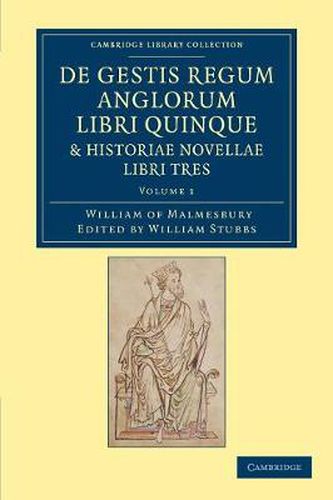Readings Newsletter
Become a Readings Member to make your shopping experience even easier.
Sign in or sign up for free!
You’re not far away from qualifying for FREE standard shipping within Australia
You’ve qualified for FREE standard shipping within Australia
The cart is loading…






Consciously modelling himself on the Venerable Bede, William of Malmesbury (c.1090-c.1142) was one of the most learned of all the medieval chroniclers. His monumental Gesta regum anglorum (‘Deeds of the English Kings’) is a model of historical scholarship, written in engaging, fluid Latin. It was first completed around 1125, but was later revised and extended. The first two books of the Gesta are an impressive demonstration of William’s extensive bibliographic and antiquarian knowledge. In this first volume of a two-volume set, originally published between 1887 and 1889, editor William Stubbs (1825-1901) presents these first two books, which narrate events from the arrival of the Anglo-Saxons to the Battle of Hastings. Stubbs’ own lengthy preface is a detailed examination of William’s life and work, which sets his historical writings in the context of his time and credits him as the first truly systematic historian since Bede.
$9.00 standard shipping within Australia
FREE standard shipping within Australia for orders over $100.00
Express & International shipping calculated at checkout
Consciously modelling himself on the Venerable Bede, William of Malmesbury (c.1090-c.1142) was one of the most learned of all the medieval chroniclers. His monumental Gesta regum anglorum (‘Deeds of the English Kings’) is a model of historical scholarship, written in engaging, fluid Latin. It was first completed around 1125, but was later revised and extended. The first two books of the Gesta are an impressive demonstration of William’s extensive bibliographic and antiquarian knowledge. In this first volume of a two-volume set, originally published between 1887 and 1889, editor William Stubbs (1825-1901) presents these first two books, which narrate events from the arrival of the Anglo-Saxons to the Battle of Hastings. Stubbs’ own lengthy preface is a detailed examination of William’s life and work, which sets his historical writings in the context of his time and credits him as the first truly systematic historian since Bede.